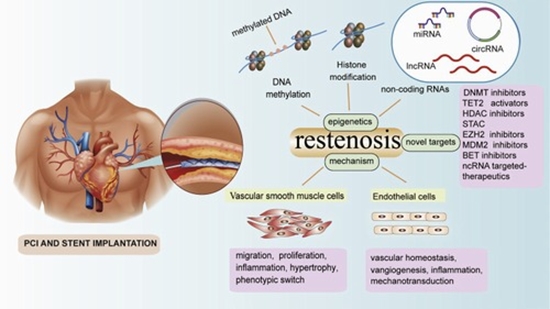Vascular Endothelial Growth Factor Genetic Variant is Associated with In-Stent Restenosis after Percutaneous Coronary Intervention
The vascular endothelial growth factor (VEGF) gene can have an inhibitory effect on ISR development. Accordingly, in the present study, we investigated the role of -2549 VEGF (insertion/deletion [I/D]) variants in ISR formation.

Abstract
Background: In-stent restenosis (ISR) is an inevitable complication of percutaneous coronary intervention, with genetic factors thought to play a role in its pathogenesis. The vascular endothelial growth factor (VEGF) gene can have an inhibitory effect on ISR development. Accordingly, in the present study, we investigated the role of -2549 VEGF (insertion/deletion [I/D]) variants in ISR formation.
Methods: Patients with ISR (ISR+) (n=53) and patients without ISR (ISR-) (n=67) were enrolled in this case-control study based on follow-up angiography 1 year after percutaneous coronary intervention between 2019 and 2020. The clinical characteristics of the patients were evaluated, and the frequencies of the alleles and genotypes of -2549 VEGF (I/D) variants were determined using polymerase chain reaction. The χ2 test was performed for the calculation of genotypes and alleles. A P value of less than 0.05 was considered the level of significance.
Results: This study recruited 120 individuals at a mean age of 61.43±8.91 years in the ISR+ group and 62.09±7.94 years in the ISR- group. Women and men, respectively, comprised 26.4% and 73.6% of the ISR+ group and 43.3% and 56.7% of the ISR- group. A significant association was observed between the VEGF -2549 genotype frequency and ISR. The frequency of the insertion/insertion (I/I) allele was significantly higher in the ISR+ group than in the ISR- group, while the frequency of the D/D allele was higher in the latter group.
Conclusion: Regarding ISR development, the I/I allele may be a risk allele and the D/D allele a protective allele.



.png)
ارسال نظر